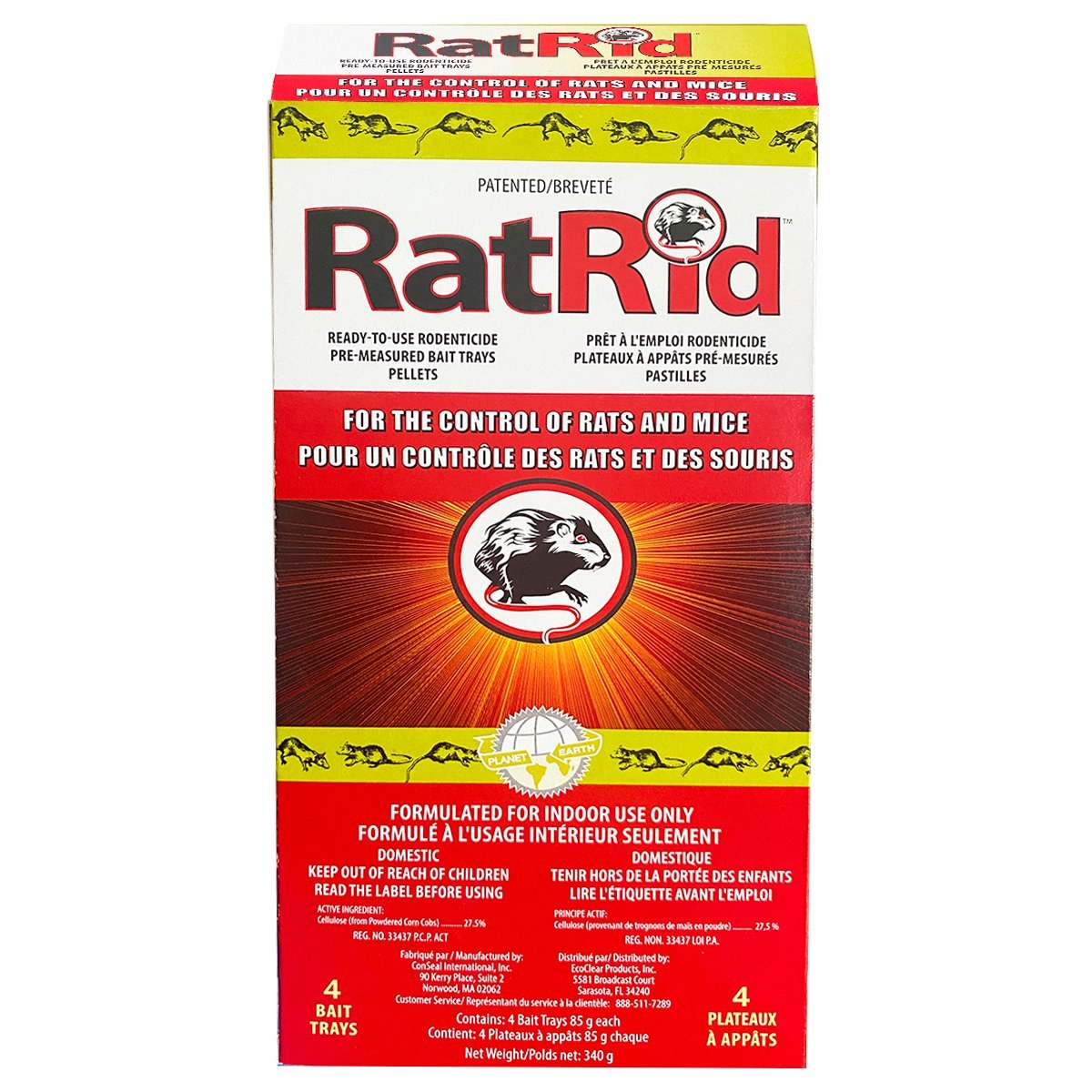WHICH RAT KILLERS ARE SAFE FOR PETS AND WILDLIFE?
Humane extermination isn’t the only thing that sets RatRid® rodenticides apart. While rat poisons (including those that contain anticoagulants, bromethalin, cholecalciferol, or zinc phosphide) can be deadly if ingested by humans or other animal species, RatRid® rodenticides are safe for humans and non-rodent pets and outdoor wildlife.

Safe for Use Around Livestock & Pets When Used as Directed.

Patented Mechanical Kill System Requires No Conventional Poisons.

Formulated for Indoor & Outdoor Use. Perfect for Both Professional & DIY Use.
HOW RatRid® WORKS
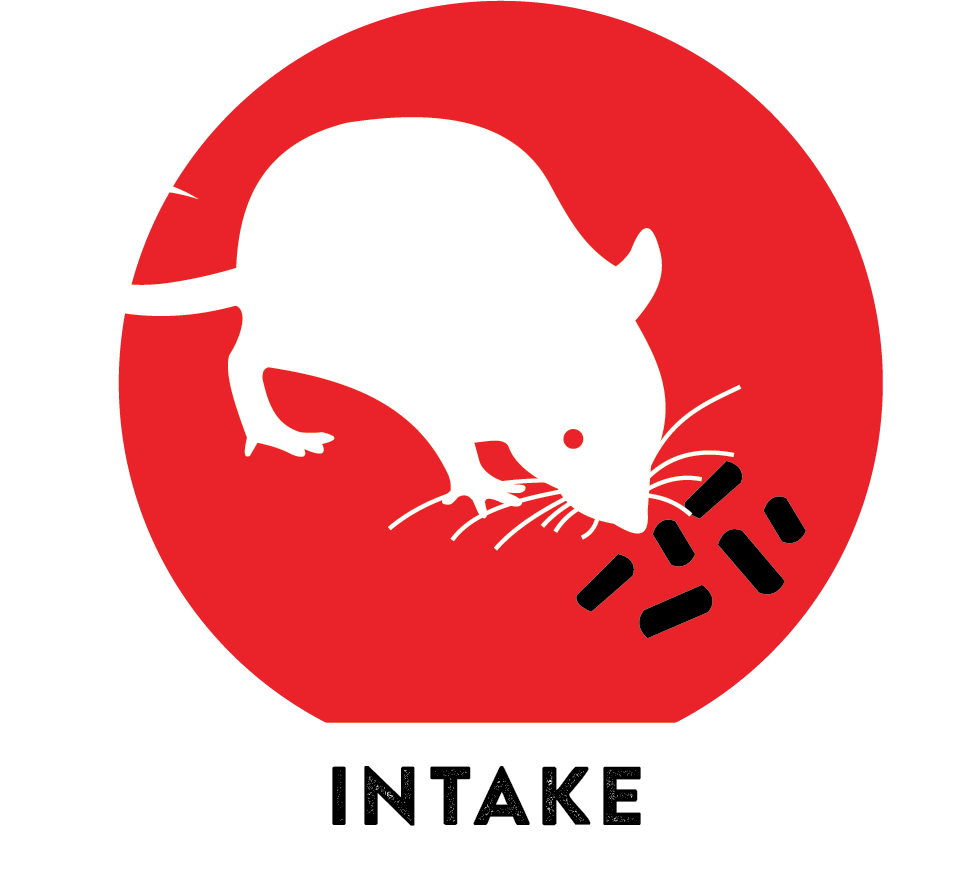
Step 1
Rodents naturally intake 10% of their body weight per feeding; consuming 4%-6% of the rodent’s weight is lethal for the pest.
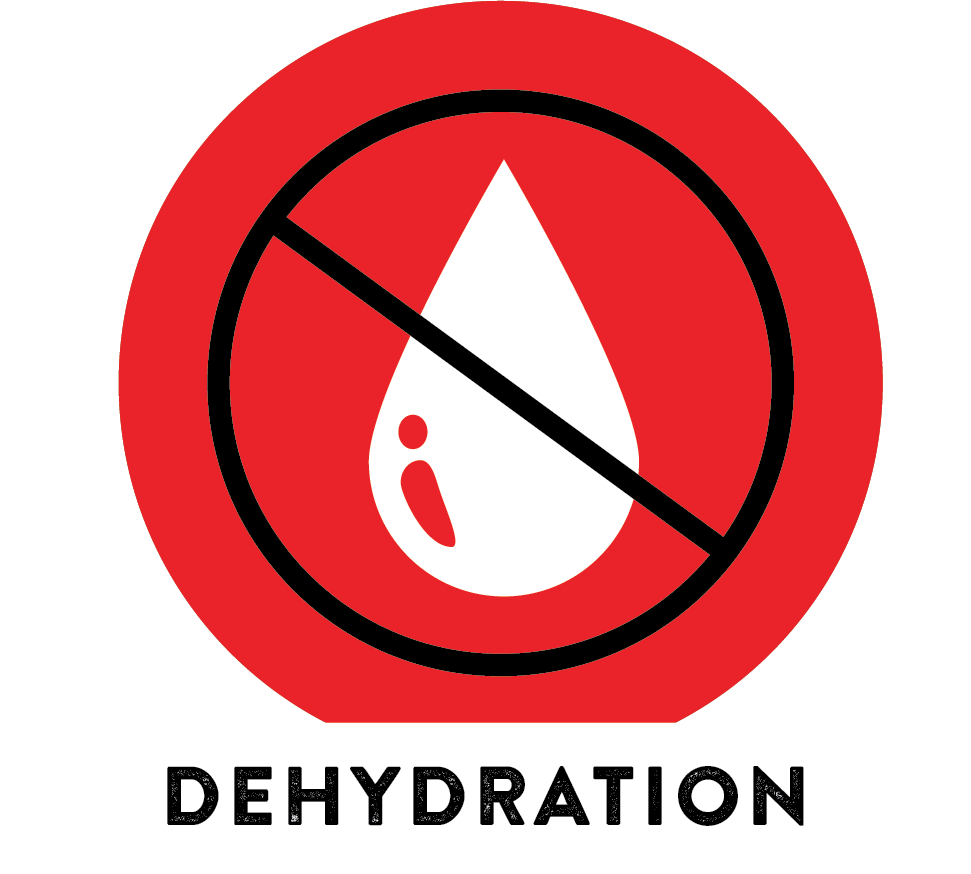
Step 2
After intake, the rodent no longer has the ability to drink, leading to dehydration.
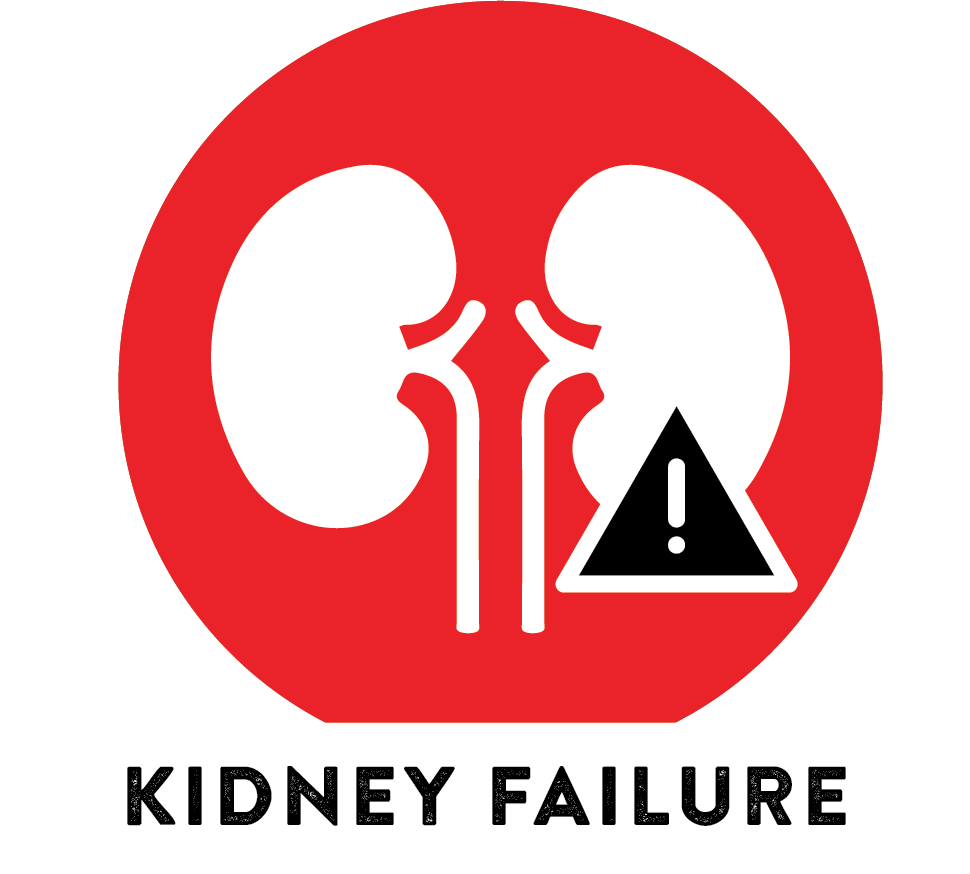
Step 3
Without the ability to drink water, dehydration continues, leading to kidney failure and unconsciousness.
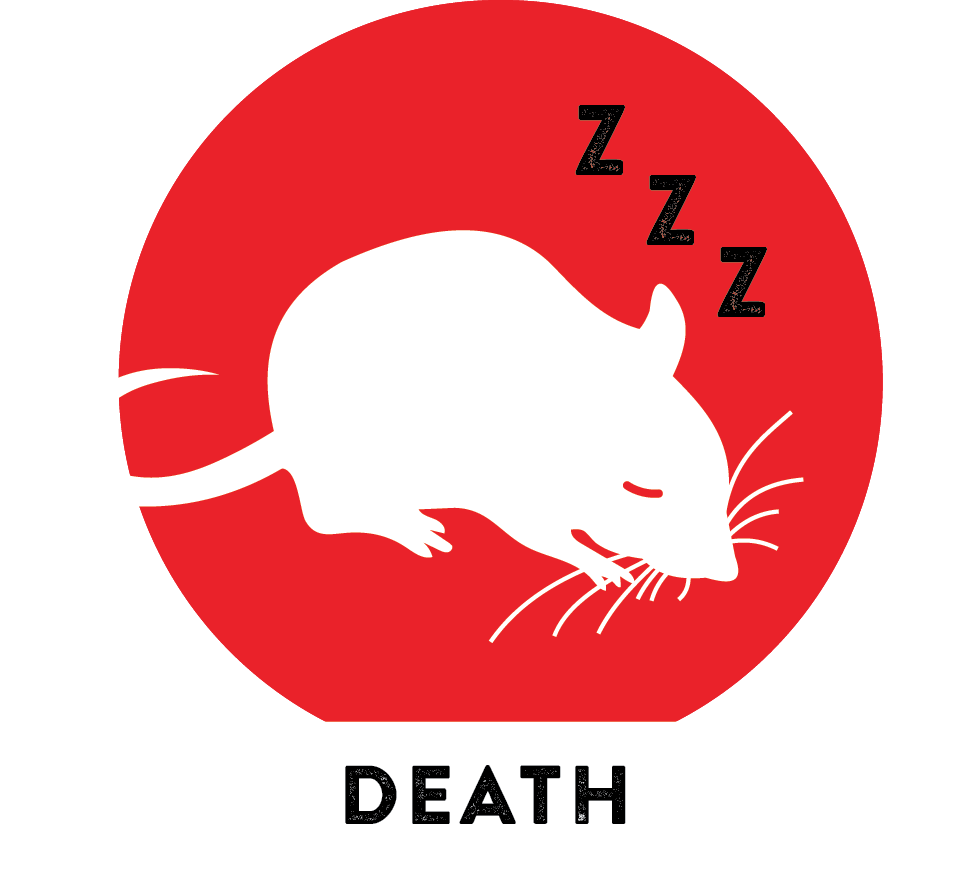
Step 4
The rodent dies in its sleep.
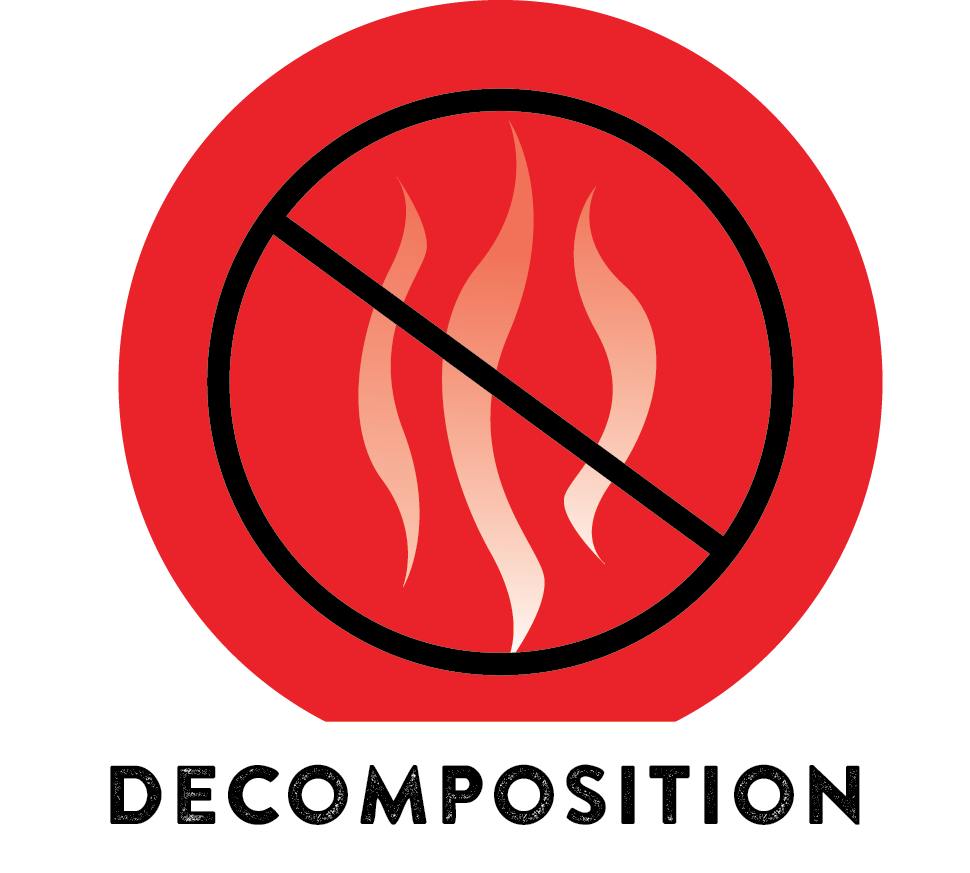
Step 5
The Sodium Chloride continues to
dehydrate the rodent from the inside out, mummifying the animal and eliminating the moisture and foul odors.
ABOUT RAT CONTROL
HOW DO RAT KILLERS WORK?
Many of today’s rat poisons use anticoagulants to kill rats. Anticoagulants take away the blood’s ability to clot, leading to internal bleeding and eventual death. Though effective, rodenticides that use anticoagulants are considered relatively inhumane. Plus, these chemicals can be deadly when ingested by humans and other wildlife species, making them incredibly risky for use indoors and outdoors.
RatRid® rodenticides take a different approach. Formulated using naturally-derived ingredients, for the rat, this process feels like nothing more than falling asleep.
WHAT ARE THE IMPLICATIONS OF RAT INFESTATIONS
Rat infestations pose serious health risks to humans and pets. Diseases directly transmitted by rats include Hantavirus pulmonary syndrome, leptospirosis, rat-bite fever, and salmonellosis. Diseases indirectly transmitted by rats include Colorado tick fever, the plague, and cutaneous leishmaniasis. If left untreated, rat infestations can also cause serious structural damage to properties of all sizes.
WHAT IS THE COST OF RAT REMOVAL?
Hiring a professional exterminator to take care of your rat infestation can cost you hundreds to thousands of dollars. Using traditional rodenticides may leave you saddled with more problems than you had before begin treatment. With RatRid® products, eco-friendly and highly-effective rat control is achievable for less than cost of groceries.
IS THERE A RAT KILLER THAT KILLS WITHOUT LEAVING A SMELL?
Common rodenticides may be effective at killing rats — but they don’t do much about the odor that inevitably surfaces after rats crawl away and die within your walls, floors, or outdoors. The active ingredients in RatRid® cause a mummification process within rodents’ bodies, causing bodies to dry out and reducing odor by as much as 90% when compared with other rodenticides. No need to plug your nose when using RatRid® Products.
HOW TO KNOW IF YOU HAVE A RAT INFESTATION?
Common indications of rat infestations include gnaw or scratch marks on food items and furniture, gnawing and scratching sounds in walls and ceilings, droppings, and rodent sightings.

